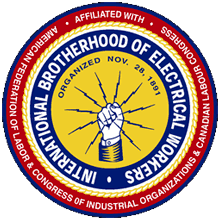New York, NY – While the Janus decision created issues for municipal unions and reduced their income, membership has not declined in New York and most other unionized states.
income, membership has not declined in New York and most other unionized states.
As we approach the one-year anniversary of oral arguments in the Supreme Court case. Janus v. AFSCME Council 31, a report by Manhattan Institute senior fellow Daniel DiSalvo lays out the current state of public-sector unions.
In its Janus decision, the court ruled that state laws requiring public-sector workers to pay “agency fees” to unions they had chosen not to join were unconstitutional under the First Amendment. While many predicted that this would spell disaster for public-sector unions, DiSalvo finds that though revenue has fallen, their membership has not declined dramatically. Meanwhile, state governments from New York to Hawaii have given unions a leg up since Janus by passing laws to shore up union strength and restrict employees’ ability to opt-out.
The decision applied to almost 6 million members in 22 states and affected labor relations across the country. However, many municipalities as New York and New Jersey have been supportive of unions. New state laws, executive orders have restricted the ability of outside groups to communicate with public employees providing unions with a protective layer. State laws and union policies seek to limit union members ability to leave only during narrow periods of time during the year. Unions also continue to provide important services to workers as representation in grievance procedure and membership benefits so membership continues to be desireable. Also, most municipal workers realize the critical importance of unions to job security and salary increases.
Moving forward, DiSalvo points to two areas of contestation in public-sector labor relations. First, state legislators and sympathetic legal scholars have proposed that governments directly fund public-employee unions with tax dollars. Second, conservative legal groups are challenging the authority of unions to act as the exclusive representative of all workers in a bargaining unit.



